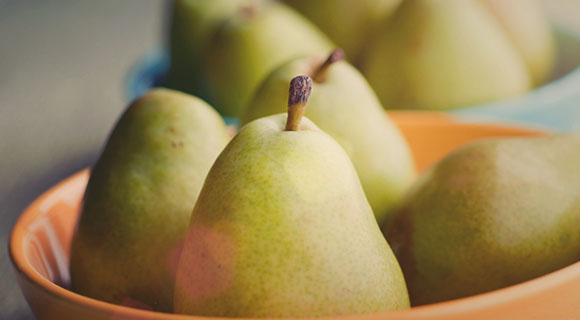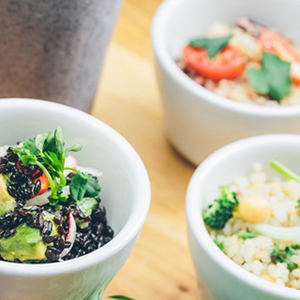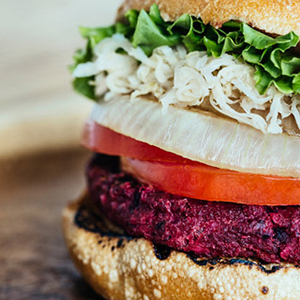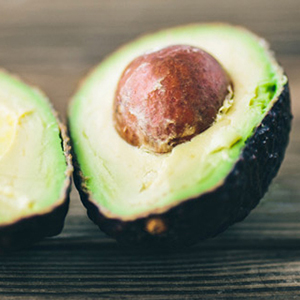
Tasty ways to get fiber in your diet
Why is fiber important?
Eating a high-fiber diet is thought to help prevent constipation and its related problems. It may lower blood pressure, improve cholesterol levels, and help control blood sugar levels. And it may help with reaching and staying at a healthy weight.
What is the recommended daily amount of fiber?
The daily adequate intake amount for fiber has been calculated by the U.S. Institute of Medicine. Men ages 19 and older should strive for 38 grams a day and women ages 19 and older should aim for 25 grams a day.
Goal for daily fiber intake (grams/1,000 kcal/day)*
| Age (years) | Women (grams a day) |
Men (grams a day) |
| 1-3 | 19 | 19 |
| 4-8 | 25 | 25 |
| 9-13 | 26 | 31 |
| 14-18 | 26 | 38 |
| 19-50 | 25 | 38 |
| 51 and older | 21 | 30 |
| Pregnant, age 19 and older |
28 | |
| Breastfeeding, age 19 and older |
29 |
How can you get more fiber?
Fiber is in many foods, including beans, peas, other vegetables, fruits, and whole grain products. You can figure out how much fiber is in a food by looking at the nutrition facts label. If a food has fiber, it will be listed under the total carbohydrate on the label. The food label assumes the daily value (DV) of fiber is 25 grams a day (g/day) for a 2,000 calorie diet.
Grams of fiber (estimates) in certain foods*
| Food | Serving size | Dietary fiber (grams) |
| Beans (navy, pinto, black, kidney, lima, white, great northern), cooked |
½ cup | 6.2–9.6 |
| 100% bran cereal | ½ cup | 8.8 |
| Split peas, lentils, chickpeas, or cowpeas, cooked |
½ cup | 5.6–8.1 |
| Pear | 1 medium | 5.1 |
| Bulgur, cooked | ½ cup | 4.1 |
| Berries (blueberries, blackberries, raspberries) |
½ cup | 1.75–4.0 |
| Almonds | 1 ounce | 3.5 |
| Apple with skin | 1 small | 3.3 |
| Whole wheat spaghetti, cooked | ½ cup | 3.1 |
| Brown rice, cooked | ½ cup | 1.8 |
Be sure to increase the amount of fiber in your diet slowly so that your stomach can adjust to the change. Adding too much fiber too quickly may cause stomach upset and gas.
Some doctors recommend adding bran to your diet to help boost the fiber content. If you do this, start slowly with 1 teaspoon a day. Gradually increase the amount to several teaspoons a day.
Does fiber help digestion?
If your diet is high enough in fiber, your stools should become softer, larger, and easier to pass.
- Changing your diet may relieve constipation, but it may not help relieve abdominal (belly) pain.
- If you don’t have any improvement within a week or two, talk to your doctor about your diet.
- Talk to your doctor if constipation continues or gets worse. Another medical problem or a medicine may be causing constipation.
Drink enough fluids every day to help keep your stool soft. High-fiber diets need enough fluid in the body to work properly.
Current as of: April 3, 2015
Author: Healthwise Staff
Medical Review: Kathleen Romito, MD – Family Medicine & Rhonda O’Brien, MS, RD, CDE – Certified Diabetes Educator
*This article originally appeared on kp.org. A full list of citations is available here.
This information does not replace the advice of a doctor. Healthwise, Incorporated disclaims any warranty or liability for your use of this information. Your use of this information means that you agree to the Terms of Use. How this information was developed to help you make better health decisions.
To learn more about Healthwise, visit Healthwise.org
© 1995-2015 Healthwise, Incorporated. Healthwise, Healthwise for every health decision, and the Healthwise logo are trademarks of Healthwise, Incorporated.
The Health Encyclopedia contains general health information. Not all treatments or services described are covered benefits for Kaiser Permanente members or offered as services by Kaiser Permanente. For a list of covered benefits, please refer to your Evidence of Coverage or Summary Plan Description. For recommended treatments, please consult with your health care provider.
YOU MAY ALSO BE
INTERESTED IN:

A closer look at celiac disease and gluten sensitivity
What you need to know about celiac disease and gluten sensitivity. If you and gluten…

The power of protein
Protein plays an essential role in health, and it is found in every cell, tissue,…

The surprising truth about fats
There are some major myths about fats. Let’s start with the 2 most common.





